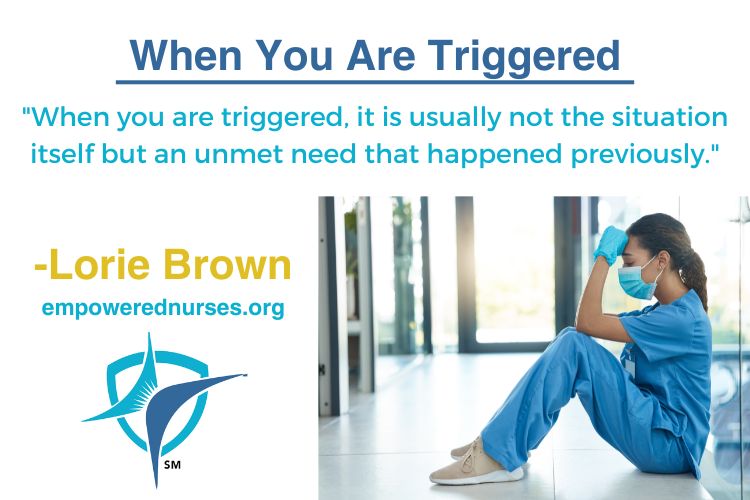When you are triggered

I don’t know about you but when I was practicing (and even now), certain things would trigger me. So, I thought I would share these steps to help you work through times when you are triggered because being triggered at work can lead to mistakes in your practice, upset, frustration, resentment and makes you appear to your coworkers like you are not a team player.
When you are triggered, it is usually not the situation itself but an unmet need that happened previously. For example, just the other day, a car cut me off in traffic. I got triggered. Was I really mad at the person that cut me off? No, it was deeper. It came from my childhood where I felt unseen, and it followed me today where I felt unseen when the driver cut me off. So, what do we do with these triggers?
I’ve been involved with a leadership program and these techniques came from leadership trainers Lisa Kalmin and Lynne Sheridan who provided these steps to navigate when you are being triggered.
1. Think about your most common triggers ahead of time, it helps.
2. In the moment, name what you are experiencing or feeling. I always joke you have to “name it to claim it.”
3. Allow yourself to experience it. So many times, in nursing we don’t have time to experience our feelings and we have to block them. This is not healthy, and it leads to obesity and all kinds of disease.
I understand that following the 2017 Las Vegas sniper shooting that claimed 60 lives, the organization “Show Me Your Stethoscope” created a meditation room at the responding hospital that treated so many of the victims so that nurses could separate themselves during a difficult shift and have a few minutes to themself.
4. It is said that emotions can last up to 7 minutes if you experience it fully and sometimes for only 90 seconds! But when you allow yourself to experience the emotions, as opposed to just hanging onto them, that’s the important stuff.
5. Usually, if we are triggered, it comes from an experience we had when we were younger. When have you felt this way before?
6. What unmet need is being revisited emotionally? Usually, it’s not even related to the actual current event. Unmet needs can be things such as connection, distraction, security, physical, relief or timing.
7. Rather than relive the past, how can you relate in this present moment? Certainly, you do not wish to relive the past, but should you be able to work through this emotion. How would you like to show up where the person who caused the event to trigger you to experience you now?
I would love to hear how, if you’ve tried these steps and how they have helped you in your practice.


